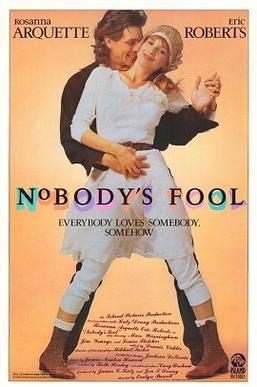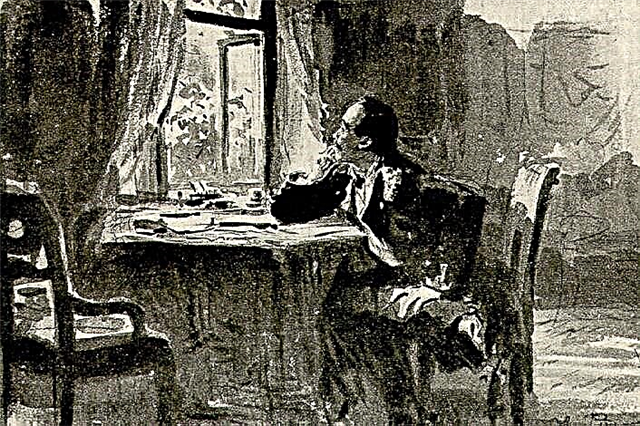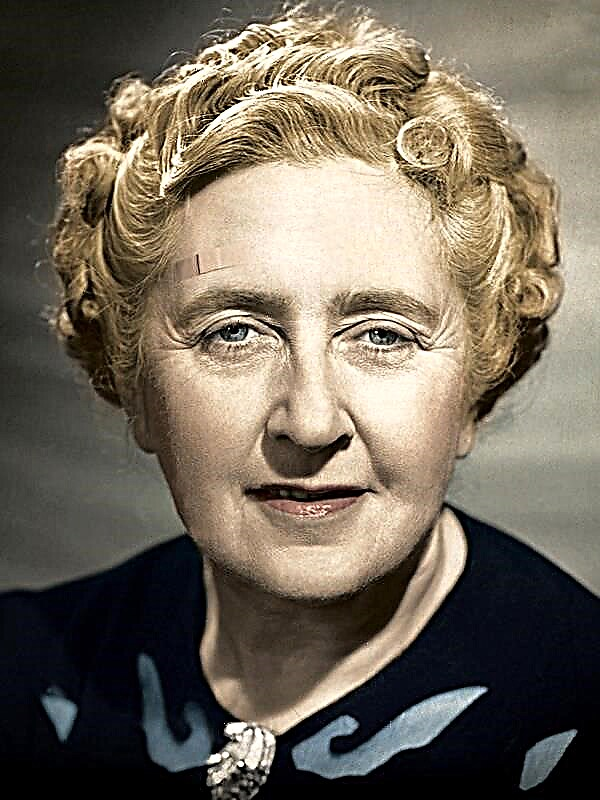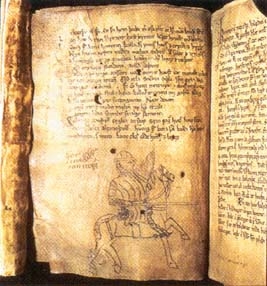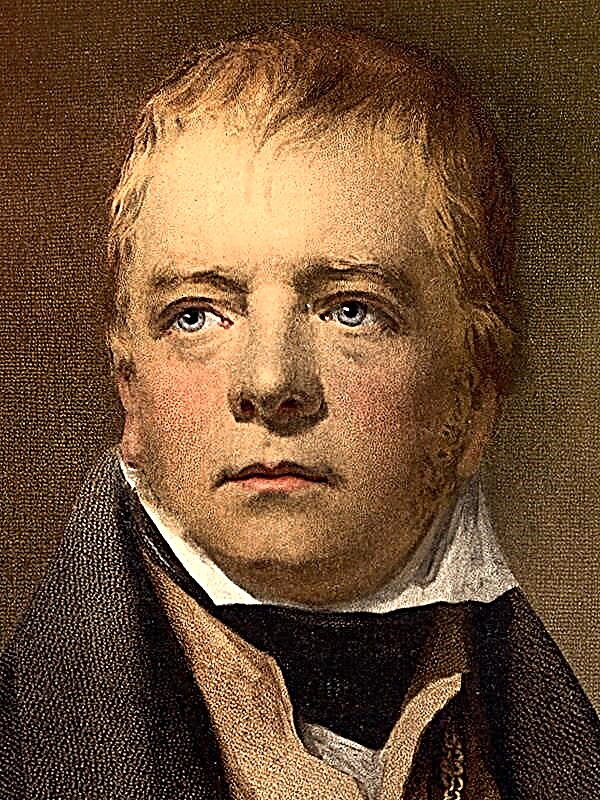In Athens, Socrates was the most famous philosopher. Then he paid for his philosophy with his life: he was brought to trial and executed precisely because he questioned too much, decomposed (as if) mores and thereby weakened the state. But this was still a long way off: at first he was only cast in comedy. At the same time, they attributed to him something that he never spoke and did not think, and against which he himself argued: that's the comedy.
The comedy was called Clouds, and its choir consisted of Clouds - fluttering bedspreads and, for some reason, long noses. Why "Clouds"? Because philosophers first of all began to think about what all the diverse set of objects around us consists of. Maybe from water, which can be either liquid, or solid, or gaseous? or from a fire that moves and changes all the time? or from some kind of "uncertainty"? Then why not from the clouds that change shape every minute? Therefore, the Clouds are the new gods of the new philosophers. This had no relation to Socrates: he was just a little interested in the origin of the universe, and more so in human deeds, good and bad. But comedy, it was all the same.
Human actions are also dangerous. Fathers and grandfathers did not think or reason, and from a young age they firmly knew what was good and what was bad. The new philosophers began to reason, and they seemed to get it, as if by logic one could prove that the good is not so good, and the bad is not bad at all. This was what bothered Athenian citizens; this is what Aristophanes wrote the comedy "Clouds" about.
A strong man named Strepsiad lives in Athens, and he has a son, a young dandy: he reaches for the nobility, is fond of horse racing and ruins his father in debt. Unbearable to sleep with his father: thoughts about creditors gnaw him like fleas. But it dawned on him that some new sages were wound up in Athens, who know how to prove the truth to be the truth with the evidence, and the truth - the untruth. If you learn from them, then, maybe, in court it will be possible to beat off creditors? And in old age Strepsiad sets off to study.
Here is the house of Socrates, on it is a sign: "Thought room." A pupil of Socrates explains what are involved in subtle subjects. For example, the student was talking with Socrates, bit his flea, and then jumped and bit Socrates. How far did she jump? This is how to count: we measure human jumps with human steps, and flea jumps must be measured with flea ones. I had to take a flea, print her legs on wax, measure her step, and then measure the jump with these steps. Or one more thing: does a mosquito buzz with a larynx or an ass? His body is tubular, he flies quickly, air flies into his mouth, and flies through his ass, and so it turns out that his ass. What is it? Map: look, this circle is Athens. “I won’t believe it at all: in Athens, there is no step, then the debaters and hookers, but not a single one is visible in this circle.”
Here is Socrates himself: hanging in a hammock above the roof. What for? To understand the universe, you need to be closer to the stars. “Socrates, Socrates, I curse you with the gods: teach me such speeches so as not to pay debts!” “What gods?” we have new gods - Clouds. " - "And Zeus?" - “Why Zeus? There is thunder in them, lightning in them, and instead of Zeus, a Whirlwind drives them. ” “How is it thunder?” - "But as you have bad air in your stomach grumbling, so in the clouds grumbling, this is thunder." - “And who punishes sinners?” - “But does Zeus punish them? If he would punish them, he wouldn’t bribe such and such, and such and such, but they go around alive! ” - "How to deal with them?" - “And the language for what? Learn to argue - and you’ll punish them yourself. The Whirlwind, Clouds, and Language are our holy trinity! ” Meanwhile, the Chorus of Clouds flies to the stage, glorifies Heaven, glorifies Athens and, as usual, recommends the public to the poet Aristophanes.
So how to get rid of lenders? “It's easier than simple: they are taking you to court, and you swear by Zeus that you didn’t take anything from them; Zeus has been gone for a long time, and there’s nothing for you for a false oath. ” So, can one really ignore the truth? “Look at that.” The main argument begins, Big baskets are brought onto the stage, in them, like fighting cocks, Pravda and Krivda are sitting. They crawl out and bump into each other, and the choir is twisting. “Where in the world have you seen the truth?” - “among the Most High Gods!” - “Is it them where Zeus has overthrown his own father and chained?” - "And our ancestors, who lived decently, humbly, obediently, respected the old, defeated enemies and conducted scientific conversations." - “You never know what the ancestors had, but now you can’t achieve anything with humility, be impudent - and you will win! Other things in people are by nature, others are by agreement; that by nature is higher! Drink, walk, fornication, follow nature! And they will catch you with someone else's wife - say: I - like Zeus, sleep with everyone who likes it! ” Word for word, slap in the face for slap, look - Krivda is indeed stronger than Truth.
Strepsiad with the son of a radionka. The creditor comes: “Pay the debt!” Strepsiad swears to him: “Zeus sees, I didn’t take a penny from you!” - “Zeus will really strike you!” “Already protect the Clouds!” A second creditor arrives. “Pay interest!” - "What is interest?" - “Debt lies and grows every month: here and pay with growth!” “Tell me, here rivers flow and flow in the sea; but is it growing? ” - "No, where can he grow!" - "Then why should money and grow? You won’t get a penny from me! ” Lenders with curses run away, Strepsiad triumphs, but the Cloud Choir warns: “Beware, the reckoning is near!”
Reckoning comes from an unexpected side, Strepsiad scrambled with his son: they did not agree in their views on the verses of Euripides. The son, without thinking twice, grabs a stick and pounds his father. The father is terrified: “There is no such law - to pound fathers!” And the son says: “If we want - we’ll take it and get it!” It’s impossible to beat fathers by agreement, but by nature - why not? ” Here only the old man understands what trouble was in it. He calls out to the Clouds: "Where have you lured me?" The clouds answer: “Do you remember the Aeschylos word: we learn from suffering!” Taught by bitter experience, Strepsiad grabs a torch and runs to deal with Socrates - to set fire to his "mental". Screaming, fire, smoke, and comedy are the end.

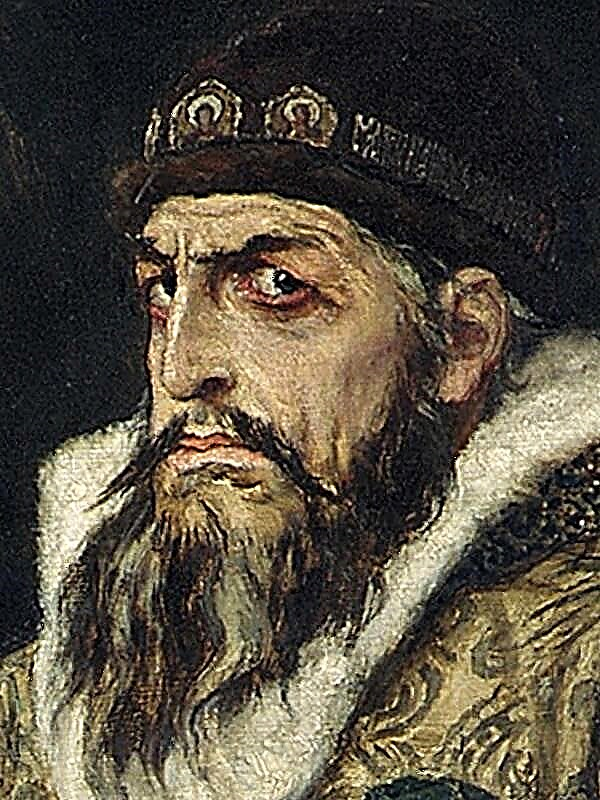
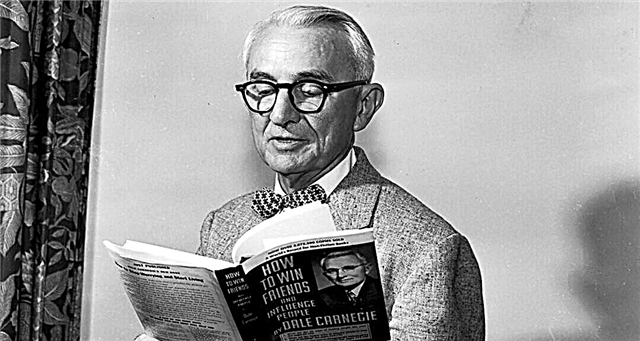 How to make friends
How to make friends